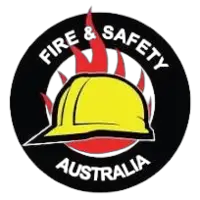
This role has a moderate level of AI exposure. AI can enhance efficiency for some tasks, but this job still relies on human skills and decision-making.
Explore all careersAn Industrial Electrician performs electrical work in industrial settings, including installations, maintenance, fault diagnosis, and safety checks.
Get qualified to work as an Industrial Electrician with a course recognised across Australia. Speak to a training provider to learn more.









In Australia, a full time Industrial Electrician generally earns $1,875 per week ($97,500 annual salary) before tax. This is a median figure for full-time employees and should be considered a guide only. As you gain more experience you can expect a potentially higher salary than people who are new to the industry.
 Courses.com.au Team
Courses.com.au Team
There has been moderate employment growth in this industry in recent years. There are currently 111,900 people working as an electrician in Australia, and many of them specialise as an Industrial Electrician. Industrial Electricians may find work across all regions of Australia.
Source: Australian Government Labour Market Insights
 Courses.com.au Team
Courses.com.au Team
If you’re planning a career as an Industrial Electrician, consider enrolling in a Certificate III in Engineering – Industrial Electrician. You’ll cover a range of topics including inspecting and maintaining wiring and electrical installations, using a range of industrial machines and equipment, applying WHS legislation and standards to electrical work and accurately performing engineering measurements and computations.
 Courses.com.au Team
Courses.com.au Team
Browse occupations related to Industrial Electrician



If you're looking to kickstart your career in the electrical industry, consider enrolling in Industrial Electrician courses in New South Wales. These courses are designed to equip you with the essential skills and knowledge required to work as an industrial electrician in various sectors across the state. With 14 distinct courses available, aspiring electricians have the opportunity to learn from accredited trainers who understand the local industry demands. Providers such as ARE Academy, FSA, and AHSI offer comprehensive training tailored to meet the needs of both beginners and those looking to enhance their skills.
Completing an Industrial Electrician course can open the door to various job opportunities in New South Wales. As you embark on this journey, you may find career paths such as a Plant Operator, or perhaps an Electrical and Instrumentation Technician piquing your interest. The range of related roles gives you insight into the diverse fields within the electrical industry that require your newly acquired technical expertise. Whether you aspire to be an Electrical Engineer or a Automation Engineer, the possibilities are vast.
New South Wales offers a thriving industrial landscape with opportunities for skilled professionals. As you progress through your Industrial Electrician courses, networking with industry contacts and alumni can help you secure promising positions. By gaining qualifications, you can confidently explore roles such as a Mechanical Fitter or even venture into managerial positions like a Mining Supervisor. With the relevant courses on offer, you can harness your talent and find the right fit in an exciting field.
Studying in New South Wales not only provides you with the necessary qualifications but also connects you with a community of fellow learners and experienced instructors. The Industrial Electrician courses allow you to gain hands-on experience and understand the practical applications of your training before you step into the workforce. This vibrant state is home to providers such as ARE Academy, ensuring you receive quality education that aligns with industry standards. Consider exploring the Engineering Tradesperson path as a related career option, where your training as an industrial electrician will be incredibly valuable.